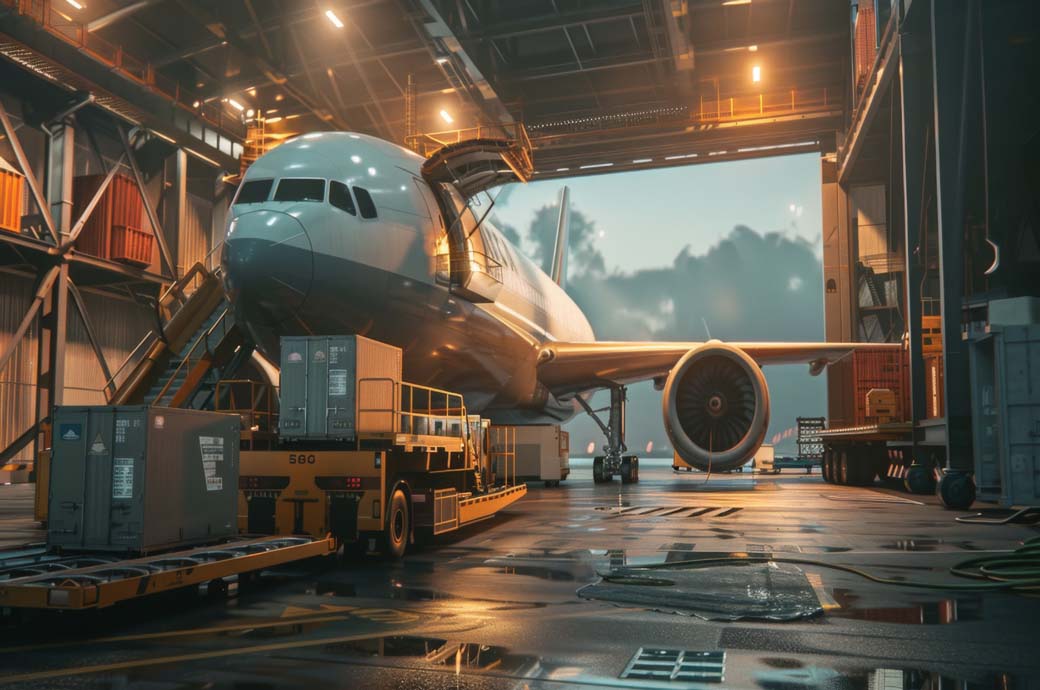
This is the ninth consecutive month of double-digit YoY growth, with overall levels reaching heights not seen since the record peaks of 2021.
Capacity, measured in available cargo tonne-kilometres (ACTKs), increased by 6.2 per cent YoY in the month (8.2 per cent for international operations). This was largely related to the growth in international belly capacity, which rose by 10.9 per cent on the strength of passenger markets. Industry-wide capacity has reached an all-time high.
“We continue to see very good news in air cargo markets. The sector recorded a second consecutive month of record high demand year-to-date. Even with record levels of capacity, yields are up 11.7 per cent on 2023, 2 per cent on the previous month, and 46 per cent above pre-pandemic levels. This strong performance is underpinned by slow but steady growth in global trade, booming e-commerce, and continuing capacity constraints on maritime shipping,” said IATA director general Willie Walsh in a release.
Several factors in the operating environment are noteworthy. Industrial production stayed level in August month on month and global cross-border trade fell marginally with minus 0.3 per cent.
In August, both the purchasing managers index (PMIs) for global manufacturing output and the PMI for new export orders were below the 50-mark at 49.9 and 48.4 respectively, indicating contraction.
Inflation saw a mixed picture in August. In the United States and the European Union (EU), inflation rates fell to 2.6 per cent and 2.4 per cent respectively, the lowest rates since 2021.
In contrast, Japan’s inflation ticked up by 0.3 percentage points to 3 per cent, the highest rate in ten months. China’s inflation rate continued its moderate upward trend, growing by 0.1 percentage points to reach 0.7 per cent, the highest rate in six months.
Asia-Pacific airlines saw 14.6 per cent YoY demand growth for air cargo in August—the strongest of all regions. Demand on the Asia-Africa, Asia-Europe and within-Asia markets grew by 21.2 per cent, 18.4 per cent and 16.1 per cent respectively.
Intra-Asia demand growth decreased by 5 percentage points from the previous month, partially linked to the social unrest in Bangladesh and Typhoon Shanshan in Japan. Both events affected local logistics operations with airport closures and flight cancellations. Capacity of Asia-Pacific carriers increased by 8.6 per cent YoY in August.
North American carriers saw 4.8 per cent YoY demand growth for air cargo in August—the lowest of all regions. Demand on the Asia-North America trade lane, the largest trade lane by volume, grew by 9.3 per cent YoY, while the North America-Europe route saw a more modest increase of 6.1 per cent YoY. August capacity increased by 2.4 per cent YoY.
European carriers saw 13.5 per cent YoY demand growth for air cargo in August. The Middle East-Europe trade lane led growth—up by 28.9 per cent YoY—maintaining a streak of double-digit annual growth that originated in September 2023. The Europe-Asia route, the second largest market, was up by 18.4 per cent. Within Europe also saw double-digit growth, up by 15 per cent. August capacity increased by 9.4 per cent YoY.
Middle Eastern carriers saw 13.5 per cent YoY demand growth for air cargo in August. The Middle East–Europe market performed particularly well, surging by 28.9 per cent YoY, ahead of Middle East-Asia, which grew by 13.5 per cent YoY. August capacity increased by 4 per cent YoY.
Latin American carriers saw 14.2 per cent YoY demand growth for air cargo in August. Capacity increased by 8 per cent YoY.
African airlines saw 7.5 per cent YoY demand growth for air cargo in August. Demand on the Africa-Asia market increased by 21.1 per cent YoY, maintaining a streak of double-digit annual growth that originated in the second half of 2023. August capacity increased by 11.4 per cent YoY.
Fibre2Fashion News Desk (DS)